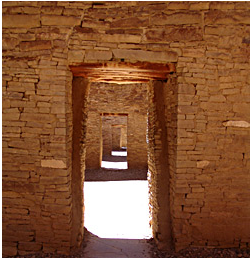Publication Date
7-1-2012
Abstract
Genetic and environmental factors contribute to variation in tuberculosis (TB) disease risk among individuals in the Americas, although the relative contribution of each of these factors remains unclear. Genetic ancestry may serve as a proxy for underlying genetic differences in TB risk between the European, Native American, and African groups that formed many populations in the Americas, but this has never been tested. Such tests are complicated by the fact that genetic ancestry and important potential social predictors of TB are usually confounded. The urban center of Nuevo León, the Monterrey Metropolitan Area (MMA), presents a unique setting to tease apart these predictors. The MMA has excessive rates of TB disease and drug-resistant TB, and it is heterogeneous with respect to potential social predictors of disease risk and genetic ancestry. This dissertation addressed three aims. First, we explored predictors of active TB in the MMA, including genetic ancestry, demographic, and socioeconomic characteristics. Second, we assessed the variability of genetic ancestry in the MMA to determine whether genetic ancestry could potentially capture genetic variants underlying disease risk in the parental populations. Third, we examined social and behavioral predictors of drug-resistant TB in the MMA. Data included detailed demographic and socioeconomic measures and 291,917 genetic markers from 194 individuals with latent TB infection and active pulmonary TB at the University Hospital in Monterrey. We found that diabetes, computer ownership, and marital status predicted active TB. Substantial variation in genetic ancestry was observed, but genetic ancestry was not a risk factor for active TB after controlling for socioeconomic variables. This result indicates that: 1) genetic components of TB disease risk do not vary in the parental populations that formed the MMA, 2) effects of genetic factors are low compared to social factors, or 3) power was too low to detect existing associations. Finally, we found that crack cocaine use predicted drug-resistant TB in this urban context. In conclusion, variation in TB rates across populations may be better understood by addressing population-specific social factors that have larger effects on active TB and drug-resistant TB susceptibility.
Project Sponsors
The Wenner-Gren Foundation for Anthropological Research, the UNM Department of Anthropology, Latin American & Iberian Institute, Office of Graduate Studies, and Institute of Public Health’s Wilhelm Rosenblatt and Edith Lenneberg Endowment
Document Type
Dissertation
Language
English
Degree Name
Anthropology
Level of Degree
Doctoral
Department Name
Anthropology
First Committee Member (Chair)
Keith L. Hunley
Second Committee Member
Jack Baker
Third Committee Member
Marcos Burgos
Fourth Committee Member
Alexis J. Handal
Fifth Committee Member
Jeffrey Long
Recommended Citation
Young, Bonnie Nadyne. "The Effects of Genetic Ancestry and Sociocultural Factors on Pulmonary Tuberculosis Susceptibility in Northeastern Mexico." (2012). https://digitalrepository.unm.edu/anth_etds/78

